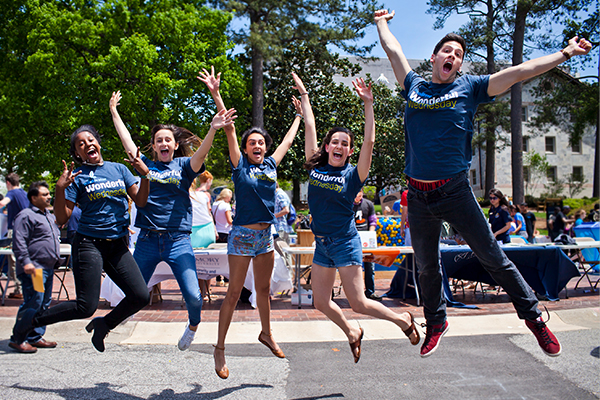New from the @EmoryCSHH News Team:
Justine Borgia recommends Dr. Georgia Ede's "Change Your Diet, Change Your Mind" for its thoughtful dietary recommendations to promote neurological and psychological health.

Editor’s Note: This post is part of a series of blog posts written by Human Health students in the Health 1,2,3,4 program’s Health 497 course — Community Health Education Strategies. To see an overview of the program and this series, please read this post.
“What does it mean to be happy?” As a high schooler, this was a question that had me fully enthralled, and I spent my time trying to narrow down what happiness really meant. When I entered Emory, one of the classes which had a major impact on me on me was the mandatory freshmen health course (HLTH 100 — It’s Your Health). Through the framework of the five pillars of health (Physical, Mental, Emotional, Social, Spiritual), the course appeared to provide a way for me to find the answer that I have been searching for. The five pillars of health presented a holistic and comprehensive way to approach the question of happiness, and I soon learned that to live a healthy life was to live a happy life.
Throughout my time in the Health 1,2,3,4 Program and specifically as a student health coach, one of the important realizations I have arrived at is that being healthy takes work. It is easy to think that we can flip a switch and simply choose to be healthy, but real life doesn’t work like that. There are so many factors in our life that we cannot control, and it takes real, intentional effort to be healthy. All that we can do is try our best and work to shift our behavior in small ways to live a healthier life. 
As a student health coach for the Health Emory Diabetes Prevention Program (DPP) – a path offered by HLTH 497 — Community Health Education Strategies – I engaged in this process of building a culture of health at Emory by working to coach and facilitate behavior change in Emory employees. The Health 1,2,3,4 Program’s HLTH 300 course, HLTH 497 course, and the DPP coaching sessions helped teach me that, even as an undergraduate student, I can have a positive impact in my community. All the participants who attended my group coaching sessions were older and more experienced than I was, but I was still able to guide each of them come up with at least one concrete action step they could undertake to improve their health. From putting away half of a large meal at a restaurant into a to-go box before eating to moving the appetizer to the opposite end of the table, the participants came up with original and innovative solutions to the problems they were facing.
As members of our Emory community, we each have an obligation to act responsibly towards each other. From being an active participant in class to promoting healthy behaviors, each of our actions has an impact on the lives and experiences of those around us. Given the recent pandemic and the tumultuous nature of our times, health is especially important as we struggle to adapt to our changing circumstances and regain a sense of routine in our lives. As students of Emory, we must each do our part to support our fellow community members. The HLTH 497 course has provided me with the unique opportunity to do so as it has allowed me to develop coaching skills necessary to be a kind and compassionate presence to those who need me. I hope that I can use the skills that I have gained to become a powerful advocate for healthy habits and work to build happier and healthier Emory community for all.
~ Akash Kurupassery
To learn more about the Health 1,2,3,4 program, visit the program webpage. For more information about collaborative partnership opportunities, contact program director Lisa DuPree at madupre@emory.edu.

